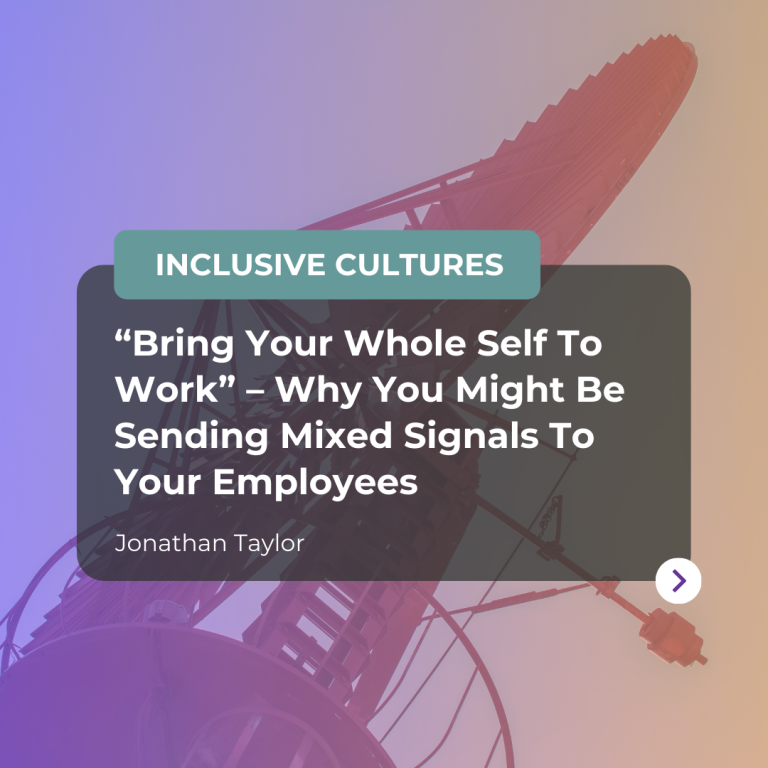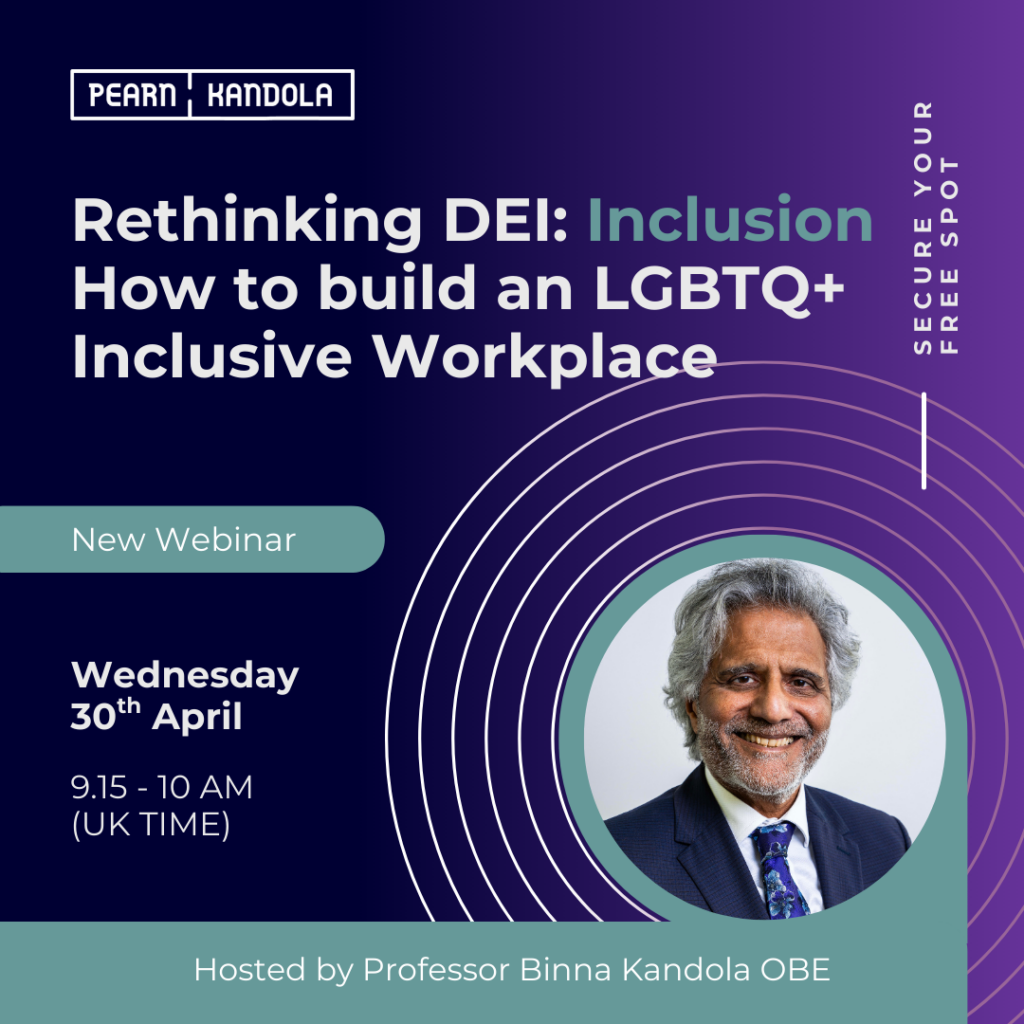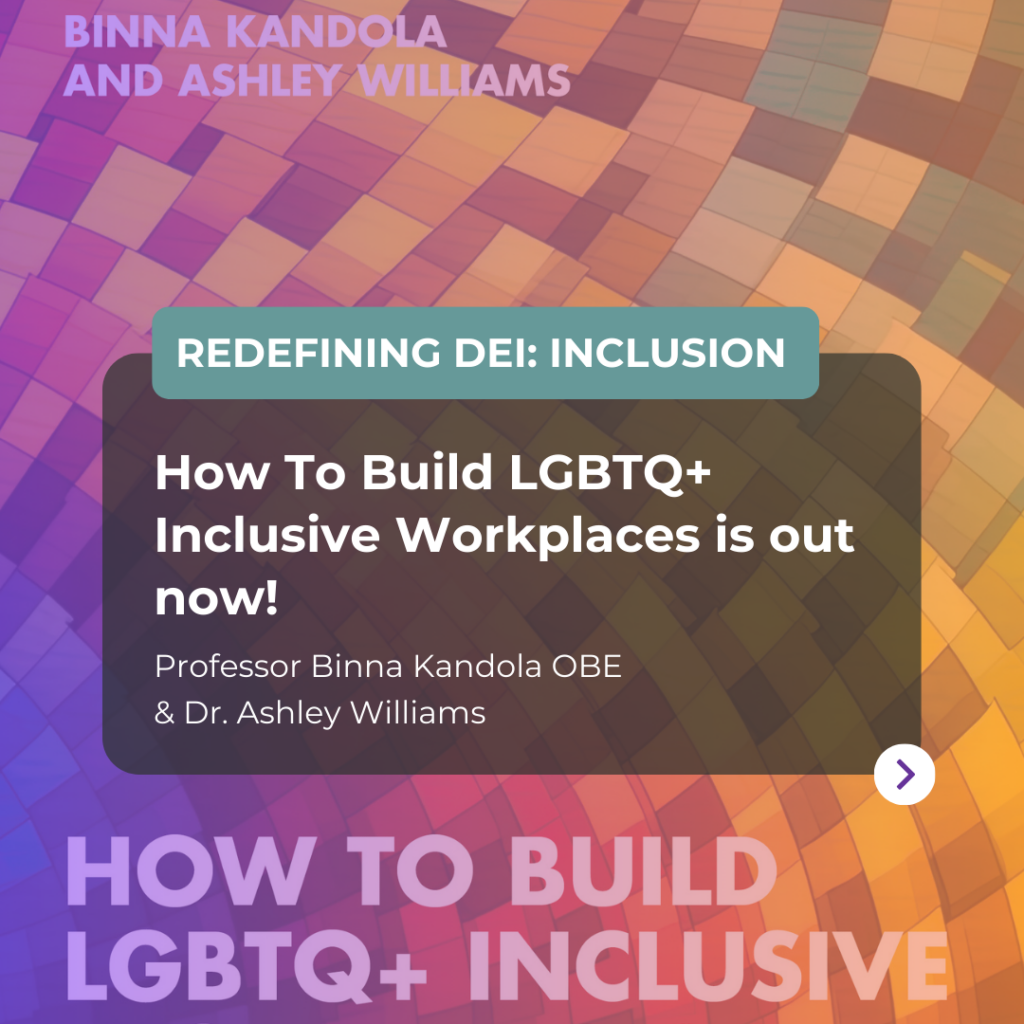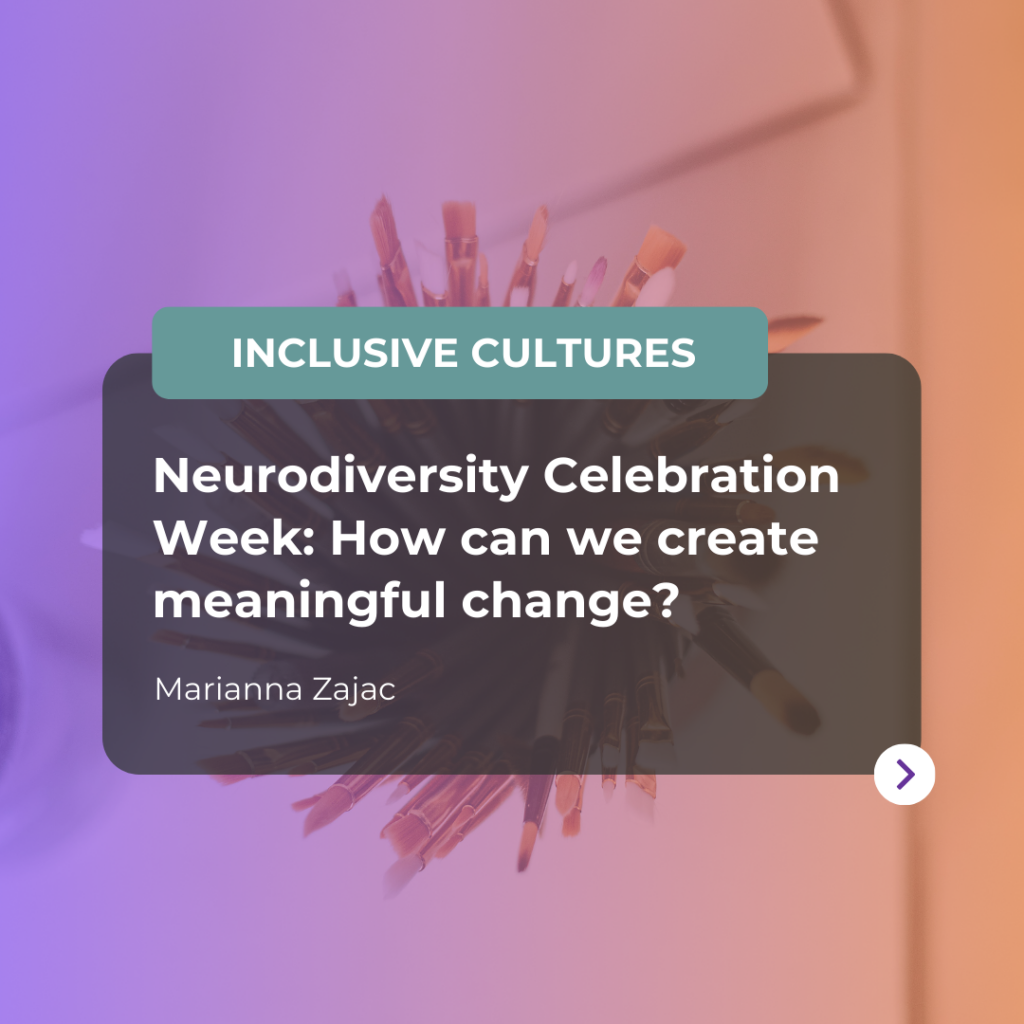Increasingly conversations about Diversity, Equity and Inclusion (DEI) are centring on the importance of promoting authenticity and creating a work environment where everyone – not just those in the majority – feel that they belong.
This is great to see, as it naturally leads to conversations about what might be holding people back from speaking up and being themselves. When I joined Pearn Kandola in 2016, the concept of Psychological Safety was somewhat of a revelation to many managers I spoke to. It articulated something that many of us had experienced, or knew was missing, and people immediately recognised its importance. Fast forward to 2024 and Psychological Safety is talked about and strived for in most organisations.
The fact that ‘Psychological Safety’ has entered the mainstream vocabulary is fantastic. Increasingly we are seeing organisations who have incorporated behaviours that promote Psychological Safety into their behavioural competencies. However, Psychological Safety is multi-faceted and it’s not just about speaking up in a meeting. A deeper sense of Psychological Safety comes from feeling accepted for who you are.
True Authenticity – Feeling Accepted For Who You Are
Our research looking at disability inclusion in 2022 revealed that 39% of disabled employees in the UK were not receiving the adjustments that they needed at work. Many cited stigma, shame or concerns of being treated differently as reasons for why they had not disclosed their condition or requested the adjustments that they needed. They worried that if they were open about their needs, this would be seen negatively.
Recently on a webinar, I suggested that many organisations approach DEI with the assumption that ‘most of us are the same, but some people are different’ (maybe you recognise this in your own organisation?). By doing so, it signals to people that individual differences only apply to some of the workforce, and that most people in the organisation will have similar needs. And if you aren’t part of the majority, somehow you are a novelty or maybe even an inconvenience.
No one wins from this. It drives conformity on a massive scale where people feel pressure to imitate others or feel awkward asking for help if they do need adjustments. And of course, beyond disability, all of us have needs and lives outside of our work. We may be mothers, fathers, carers, or be going through a bereavement. And yet it can feel difficult to ask for help or for adjustments when this is not seen as normal.
Normalising Conversations About Individual Needs
This is why we need to encourage a different kind of conversation between line managers and their teams. To feel truly authentic, it is important that employees can be open about what they need to perform well in their role, and that this is a regular, normal conversation that managers have with everyone. Doing this will promote better inclusion for disabled colleagues, but also for non-disabled colleagues.
This is just one of the updates we have made to our Inclusive Leadership programme, where we help managers at all levels to have conversations that build Psychological Safety and promote a greater sense of authenticity and belonging for all.
If you would like to learn more about our new Inclusive Leadership Programme, please get in touch via info@pearnkandola.com








